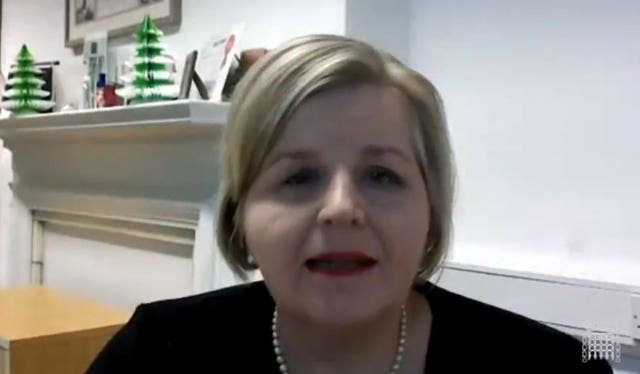Hospitals need £400m per year to improve maternity safety – report
The Ockenden Review into baby deaths and allegations of poor care at Shrewsbury and Telford Hospital NHS Trust identified seven ‘essential actions’.

Improving the safety of maternity units and implementing recommendations made as part of an inquiry into baby deaths will reportedly cost £400 million per year.
The Ockenden Review into baby deaths at a scandal-hit NHS trust said maternity staff had caused distress to patients by using “inappropriate language” and blaming grieving mothers for their loss.
The inquiry into deaths and allegations of poor care at Shrewsbury and Telford Hospital NHS Trust (SaTH), set up in 2017, identified seven “immediate and essential actions” needed to improve maternity services in England.

Led by senior midwife Donna Ockenden, the review said risk assessments throughout pregnancy and the monitoring of foetal wellbeing need to be ensured, along with enhanced safety, listening to women and families, managing complex pregnancy, and staff training.
In the wake of the interim report, the Royal College of Obstetricians and Gynaecologists and Royal College of Midwives said ensuring safer care will require investment and “increasing workforce numbers to address the serious shortage of midwives and obstetricians”.
Now, Chris Hopson, chief executive of NHS Providers, an organisation representing NHS trusts, said at least £250 million would be needed annually to achieve the required increase in workforce numbers.
“If we include shortfalls in neonatal nurses, maternity support workers and anaesthetists, for example, the total annual extra recurrent funding required could be as high as £400 million or more”, he wrote in a letter to Health Select Committee chairman Jeremy Hunt, according to the Independent.
The “emerging findings” report was published in December, based on a review of a selection of 250 cases of concern, which include the original 23 cases that initiated the inquiry.
A fuller review will take in the cases of 1,862 families.
Mr Hopson told the Independent: “Trust chief executives feel strongly that this is a really important agenda but they can’t implement the recommendations from the Ockenden Review in full unless there is more funding made available.
“This clearly depends on the Government making the funding available or NHS England making this a priority, but that would mean deprioritising something else. We need one of these two solutions to come through.”
Speaking following the publication of the emerging findings report, Louise Barnett, chief executive at SaTH, said: “I would like to thank Donna Ockenden for this report but, more importantly, the families for coming forward.
“As the chief executive now and on behalf of the whole trust, I want to say how very sorry we are for the pain and distress that has been caused to mothers and their families due to poor maternity care at our trust.
“We commit to implementing all of the actions in this report and I can assure the women and families who use our service that if they raise any concerns about their care, they will be listened to and action will be taken.”





